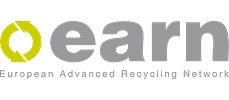WEEE registrations and compliance schemes
Producer registration
Under the WEEE Directive, all EU Member States must establish registers for manufacturers of electrical appliances. The brand, manufacturer name, device type and category are registered separately in each EU country. The registration ensures that the producers take on responsibility for their electrical and electronic equipment during its complete lifecycle. This includes producing the products, putting them on the markets, taking them back from the users and ensuring proper recycling and recovery.
A single, EU-wide valid registration is not possible due to the individual implementation of the WEEE directive in the member states.
Publicly accessible national registers for manufacturers of electrical appliances in certain countries allow a quick check about a manufacturer being registered or not. The public accessibility of the registers is part of the enforcement measures of the national authorities and aims at encouraging producers to comply with their producer obligations.
Stiftung ear
In Germany the national register for waste electric and electronical equipment, stiftung ear, was founded by producers as their so called Clearing House (Gemeinsame Stelle) for the purposes of the Electrical and Electronic Equipment Act (ElektroG). Entrusted with sovereign rights by the Federal Environment Agency (UBA), stiftung ear registers the producers of electrical and electronic equipment and coordinates the provision of containers for public exchange facilities and the pick up of electrical and electronic waste equipment at the municipal collection points in Germany. “Stiftung ear” is not a producer compliance scheme and does not control or influence the treatment of WEEE in Germany.
Producer Compliance Scheme (PCS)
A producer compliance scheme (PCS) is an organization whose clients (members) are placing electrical and electronic equipment (EEE) on the market. The PCS works to create full compliance of the members with their individual WEEE requirements by:
- Keeping records of all units and weights placed on the market by each member
- Reporting such data to the national authorities
- Collecting fees in relation to any fee owing to the national government or national registration proceedings
- Financing take back and recycling operations to reach quantities and weight targets from the quantities and weights declared by its members
- Reporting operations and recycling achievements to members and authorities
Consequently, PCS organize administrative proceedings, take back and recycling operations in order to fulfill the producer obligations. In most member states of the EU producers that place on market B2C devices have to join a PCS to be compliant.








